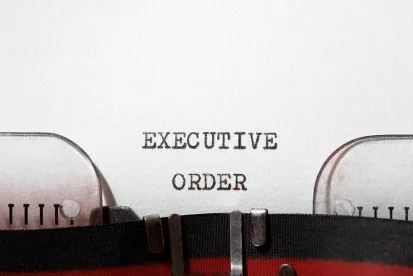Hi TCPAWorld! It is a huge week for those of you using artificial intelligence in your business!
If you have been keeping tabs on the White House’s latest movements, you’ll know that President Biden has recently signed a new Executive Order addresses the safety and security concerns that stem from the use of AI.
AI has been making waves in the tech world for a while now, and it has truly revolutionized our entire world.
However, the legal implications have always been…well…vague at best.
COMES NOW, Biden’s Executive Order (“Order”).
And apparently, the newest Mission Impossible may have been part of the impetus behind this Order, according to a PBS interview with deputy White House chief of staff Bruce Reed.
Anyway, this Order is extremely broad sweeping as it addresses numerous concerns that stem from American society’s increasing use of and reliance on AI. Here are some highlights!
First, here is a quick overview of the initiatives implemented by this Order:
- Requires that AI developers share safety test results and other critical information with the U.S. government;
- Tasks the National Institute of Standards and Technology, the Department of Homeland Security, and Departments of Energy with developing “standards, tools, and texts to ensure that AI systems are safe, secure, and trustworthy;
- Requires that “agencies that fund life-science projects” must establish standards for biological synthesis screening in order to any federal funding;
- Tasks the Department of Commerce with developing “guidance for content authentication and watermarking to clearly label AI-generated content;”
- Fosters the establishment of “an advanced cybersecurity program to develop AI tools and find and fix vulnerabilities in critical software.”
Second, the Order puts pressure on Congress to pass bipartisan data privacy legislation and directs the following in order to promote Americans’ privacy:
- The prioritization of “federal support for accelerating the development and use of privacy-preserving techniques;”
- The advancement of research and technologies aimed at preserving privacy;
- The evaluation of federal agency protocols for the collection and application of commercially available information;
- The strengthening of privacy guidelines within federal agencies to specifically address the risks inherent to AI;
- The creation of evaluation guidelines for federal agencies to gauge the performance of privacy-conserving measures—including the ones used in AI.
Third and Forth, this Order also addresses the equity and civil rights concerns that come with the increasing us of AI in today’s world and provides several initiatives to aid in the implementation of AI in our healthcare and educational institutions.
Fifth, the Order provides initiatives for supporting American workers in this AI revolution:
- Development of principles and best practices aimed at mitigating the adverse and amplifying the beneficial impacts of AI on the workforce, touching upon issues like job displacement, labor standards, and workplace equity;
- Compilation of a comprehensive report that explores AI’s implications on the labor market and outlines options for enhanced federal support for workers impacted by AI.
Sixth, the Order outlines initiatives to help promote innovation and competition though AI.
Lastly, the Order seeks to aid in the responsible and effective government use of AI.
So what does this mean for TCPA related issues? Well, as the Order calls for a multi-agency approach to addressing AI concerns, you can only assume that the FCC will end up having a seat at that table.
So don’t be surprised if the FCC takes this as an opportunity to clarify the TCPA’s stance on AI technologies like AI agents, text message bots, and the use of ATDS technology in conjunction with AI technology.
Litigants could be looking at a whole new playing field as these technologies become further regulated.
However, despite this Order being signed, we’re still in the ‘wait and see’ phase.




 />i
/>i

